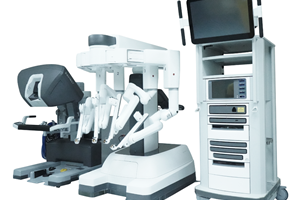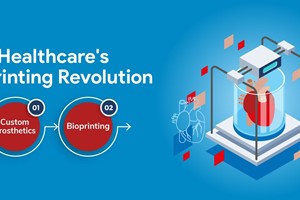According to the latest report by management consultancy firm Arthur D. Little, new technologies are set to accelerate data-driven healthcare transformation in the Middle East in the coming decade. The report highlights that digital transformation in healthcare is the key to enhancing quality, boosting access, and driving efficiency. Moreover, it projects that clinical workflow will become more agile by virtue of Artificial Intelligence (AI) and advanced analytics, ultimately automating decision-making processes while many important technologies reach mainstream adoption.
“As we look ahead to the coming years, the influence and impact of emerging technologies are already apparent. Because of the fundamental reform they deliver, a data-driven transformation is the first step in moving the industry forward,” says Vikas Kharbanda, Partner and Healthcare practice lead at Arthur D. Little Middle East. “Big data is particularly significant for healthcare players due to the benefits it offers. It allows for more accurate staffing, standardised treatments, and fewer medication errors which will entirely re-imagine existing medical practices.
“Institutions at the earliest stages of their data-driven transformation journeys can take encouragement from various success stories where we have already seen emerging technologies implemented successfully across the Middle East,” he adds.
Big data, in particular, is the trigger to move the healthcare industry forward. Big data analysis aggregates information and makes possible the identification of patterns and trends. For the healthcare industry, big data can provide several important benefits, including:
- More accurate staffing – helps hospitals estimate future admission rates.
- Facilitation of chronic care – facilitates effective management of a population risk cohort by creating lean processes for continuous and standardized treatments.
- Lower rate of medication errors – can identify and flag any inconsistencies between a patient’s health conditions and drug prescriptions and alert health professionals and patients of any discrepancy
The report describes how the healthcare industry faces change in the next years to transform patient care. In this early stage of this revolution, trends such as the growing acceptance of wearable healthcare devices, cloudification, and the incorporation of AI into healthcare are coming into play. These new technologies generate a massive quantity of data that must be processed and secured to create value.
In conclusion, the report finds that various stakeholders are driving the transformation of the healthcare industry. Government can promote the implementation of integrated systems and knowledge sharing, while private institutions may supply specific analytics skills. However, individuals are, in some cases, reluctant to share data if they are unable to benefit from it. Finally, the culture within healthcare organizations and the lack of appropriate analytics skills may impede change.













